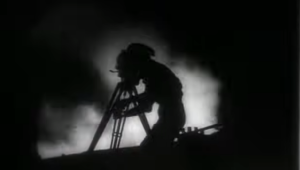I don't get this article as the sound I'm accustom to is carried by that same air I love to breathe and since space is a vacuum whatever sound there is isn't something audible in space itself. But I did have a brainstorm...if the air in a dedicated listening room could be made denser (i.e. more efficient in wave transmission) wouldn't any speaker sound better? This on the surface sounds like I'm having stupid thoughts, but, hey, if I've thought of it I'm sure someone else has not only thought of it but taken it further. Interesting.
In Space, No One Can Hear You Scream

Outer space, of course, is a vacuum. And without a transmission medium, there can be no sound. Slam your spaceship door as much as you want, but no one will hear it because the vibration energy won't go anywhere. The absence of sound in space hasn't stopped virtually every filmmaker from adding the sound of powerful rocket motors to every spaceship in every space film. In reality, outer space is absolutely the quietest place possible.
Cassini-Huygens, an actual spacecraft, has been orbiting Saturn since 2004. Its fuel tank almost empty, it is finishing its mission with a planned deorbit and a series of risky dives that flies it through the 1,200-mile-wide gap between Saturn and its innermost ring.
On board is the Radio and Plasma Wave Science (RPWS) instrument; among other duties, it detects particle impacts. Researchers have been puzzled by the results from Cassini's first dive on April 26; the sensor found a high density of particles just outside the main rings, but very few inside the rings. To help them understand the data, researchers used RPWS data to create a sound file. You can listen to the file from Cassini's first dive here. You can also watch a movie of its first dive here.
I'm not entirely sure what we're hearing, but apparently when the RPWS data is converted to audio, it usually emits squeaks and whistles; particle impacts sound like pops and cracks. According to William Kurth, head of the RPWS team, just outside the rings, the instrument "detected the hits of hundreds of ring particles per second" but inside the rings, "It was a bit disorienting - we weren't hearing what we expected to hear... I can probably count on my hands the number of dust particle impacts I hear." Why has the inner gap been swept so clean? For now, no one knows. They are calling the gap "the Big Empty."
Maybe more data collection will shed some light on this newest mystery. In total, Cassini will orbit Saturn 22 times until, on September 15, it plunges into Saturn's atmosphere and burns up. And the Big Empty will be silent again.
- Log in or register to post comments































































